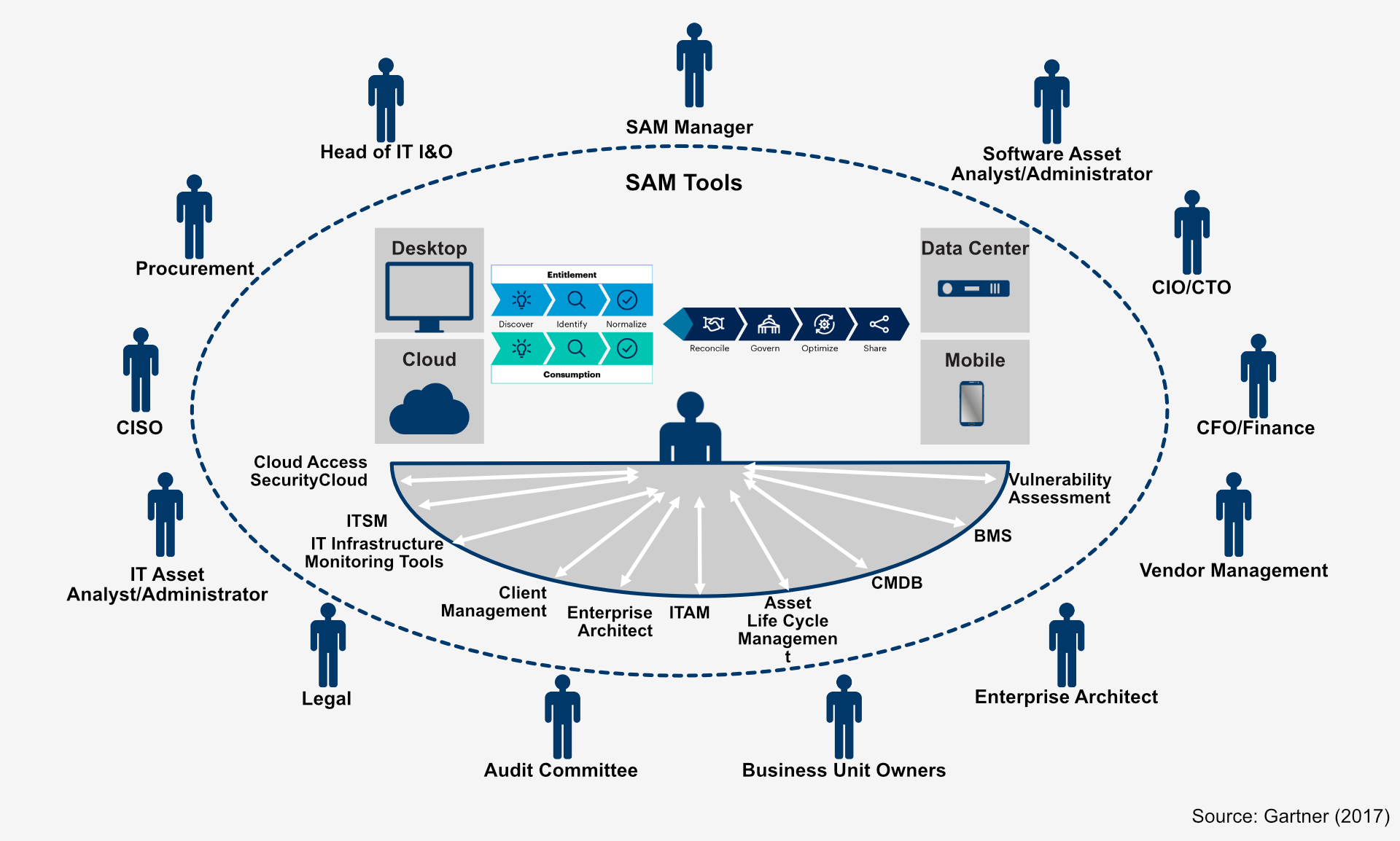 https://samtoa.de/wp-content/uploads/2024/06/JGR_KSP_Umgang-mit-Oracle-im-Java-Audit_Bild.jpg
330
643
Wolfgang Stratenwerth
https://samtoa.de/wp-content/uploads/2020/10/samtoa-license-experts-logo.svg
Wolfgang Stratenwerth2024-06-04 12:42:032024-06-04 14:22:04Beware of Oracle-Java-Audit: How to Prepare and Respond to Oracle’s Inquiries
https://samtoa.de/wp-content/uploads/2024/06/JGR_KSP_Umgang-mit-Oracle-im-Java-Audit_Bild.jpg
330
643
Wolfgang Stratenwerth
https://samtoa.de/wp-content/uploads/2020/10/samtoa-license-experts-logo.svg
Wolfgang Stratenwerth2024-06-04 12:42:032024-06-04 14:22:04Beware of Oracle-Java-Audit: How to Prepare and Respond to Oracle’s InquiriesLet me tell you a fictitious story of a license manager in a fictitious company and decide for yourself whether you recognize yourself. (All personal and company names in this story are fictitious)
Mr. Winter is successful
Many years ago, Mr. Winter took on the role of license manager at Naturol AG. He wasn’t keen on the job, but nobody else wanted it.
With a great deal of commitment, Mr. Winter gained an overview of all the licenses acquired. When he tried to compare this with the usage, he realized that he could not get any further without the SAM tool.
Interfaces to other systems were implemented. Processes were set up with software purchasing and change management.
After a few years, Mr. Winter was satisfied. The IT manager, Mrs. Schmidt, received all the information she needed almost at the touch of a button.
Word got around. The purchasing department realized that they could now negotiate much better with the data from license management. The finance department used the data to plan budgets better. In the event of disputes, the legal department received all original contracts with ancillary agreements from the license archive, and the CIO was able to carry out strategic IT planning based on precise figures of the actual situation. Mrs. Schmidt was proud of what Mr. Winter had built up.
TIME DOES NOT STAND STILL
But times were changing. It was soon no longer enough to find out from a SAM tool which software was installed on a computer and whether a free license was still available.
Virtualization of hardware, remote access, complicated metrics, use in the cloud and new billing models are now placing new demands on license management.
Mr. Winter was only able to achieve this by hiring several specialists who had mastered the complexity in their areas and were willing to undergo continuous further training.
The SAM tool also had to adapt to the changes. This did not make them any easier to use. Small errors when recording data quickly lead to expensive consequences.
But this was not only the case for Naturol AG. Other companies were also looking for experienced license management staff. Naturol AG lost its specialist for server licenses to a company in the neighborhood, where he received a higher salary. The SAP license manager received an offer from Horizon GmbH that he could not refuse.
Together with the HR department, Mr. Winter was desperately looking for a replacement. The successor to the SAP license manager was trained with great commitment and received a significantly higher salary. Unfortunately, he left the company shortly afterwards.
The staff shortages in license management and the frequent staff changes meant that departments that were now dependent on the figures from license management were no longer able to do their work satisfactorily.
Purchasing missed opportunities to cancel maintenance contracts that were no longer needed.
The planned budgets could no longer be adhered to as important items were not considered. The legal department lost processes because the contractual bases were insufficiently documented. The CIO planned to outsource the data centre and was surprised by considerable additional costs.
The company began to flounder!
Mr. Winter’s good reputation was at risk.
Mr. Winter seeks advice.
In this situation, Mr. Winter talked to Mrs. Schulze from the license management department at Maquinaria AG about his difficulties.
Mrs. Schulze has been working with the service provider Ateneo for several years. Routine license management tasks, e.g., data maintenance in the SAM tool, are carried out entirely by Ateneo employees. As soon as a manufacturer announces an audit, the company’s specialists, who are already familiar with the company’s environment, are consulted. Mrs. Schulze and her team can take care of the strategic issues and act as the interface between the internal departments and the external company.
Mr. Winter now sees a way in which he can fulfil the increased demands on his department without having to keep looking for and training new employees himself.
All just fiction?
Do you recognize yourself? Which role are you in – Mrs. Schulze or Mr. Winter?
Our experience is that there are many Mr. Winters.
Many companies are looking for license managers. However, this profession is not an apprenticeship. Even computer science or business informatics graduates are hardly familiar with the subject. The few experienced license managers can therefore only be headhunted, or companies must put up with long training periods.
In 2021, Gartner recommended using a SAM Managed Service Provider (MSP) to solve resource bottlenecks in response to the shortage of license management specialists. However, the role of process owner should remain in-house to ensure control. (Gartner, “Market Guide for Software Asset Management Tools” by Ryan Stefani. September 20, 2021)
A well-positioned license management system provides important information that is not only used for compliance with license regulations. SAM tools are evolving to collect and process this data correctly. But qualified employees are needed to operate them. Complex license regulations must be understood and communicated.
WHAT DANGERS ARISE FROM STAFF SHORTAGES IN LICENCE MANAGEMENT?
The SAM department has the task of collecting usage information about software in order to avoid unintentional legal violations and the resulting costs. In companies, this has led to the collection of highly up-to-date and high-quality data in license management.
Many areas now benefit from this complete and up-to-date source of software, hardware and usage information.
Managers throughout the organization can make better, more informed decisions and achieve positive results from the data.
Gartner’s SAM tool ecosystem from 2017 shows who benefits from SAM analyses:
Software asset administrators and SAM managers receive information from the tools that forms the basis of their decisions.
Other areas receive long-term support, for example:
- Procurement receives usage information that leads to concluding better contracts or cancelling unnecessary contracts
- IT management will use utilization information to plan and rethink strategies with regard to software and hardware deployment or IT security
- Supplier management can bundle procurements.
- The finance department can distribute costs, plan expenditure, etc.
- The audit team is prepared for an audit by a manufacturer
All of these areas can only make the right decisions if the license management data meets the requirements for up-to-dateness and quality.
The described dynamics in license management jeopardize this requirement. If new usage scenarios (hybrid usage, BYOL, SaaS) are not recognized and changed license terms are not recorded or taken into account in the tool, the evaluations are no longer correct. Decisions in all areas of the company are therefore based on the wrong foundations.
WHAT POSSIBLE SOLUTIONS ARE THERE?
A SAM organization is needed that is familiar with the technologies, draws the right conclusions from various sources, can use tools optimally, uses automation, provides the right evaluations for stakeholders and communicates with other areas. This can be achieved with limited internal resources if the following points are considered.
Outsource routine tasks
If internal resources are limited, routine tasks can be handed over to experienced service providers. These are activities that do not require granular knowledge of internal company structures. This frees up employees to focus on areas that should be dealt with internally.
Buy in specialized expertise when needed
Expert knowledge should be utilized for special topics. No license manager can be familiar with all topics and certainly not in the depth required by the situation. It is therefore advisable to establish stable relationships with experts who can be involved if necessary and who know the company.
Setting up the SAM organization perfectly
Coordination of cooperation between the internal team and external consultants is necessary. As Gartner has stated, the role of process owner should remain in internal hands. Continue to take on the tasks:
- Orchestrate resources
- Ensure governance
- Know information recipients and ensure the flow of information
- Involve information providers in processes
HOW CAN SAMTOA HELP YOU WITH THIS?
We close the gaps in companies where tasks cannot be performed by internal employees due to resource constraints and concentrate on specialized topics for which expert know-how is required.
For example, we take care of software portfolio management for our customers. For each new software product, we research the criteria according to which our customers can decide whether the product can be included in the software catalogue. Our customers save themselves the labor-intensive task of evaluating the software and can concentrate on the assessment. A decision can be made quickly, and it is ensured that the software in the company catalogue meets all requirements (IT security, data protection, contract law, commercial criteria).
More and more software is not purchased, but acquired as a subscription. This leads to an explosion in renewal dates. We ensure that contracts that are no longer required are cancelled in good time. This saves our customers a lot of money.
SAP license measurement can quickly lead to high relicensing costs. Our consultants know how to allocate licenses optimally and avoid errors in the measurement process.
When it comes to license audits, it is important to have experienced experts at your side who know how to achieve a good result with the respective manufacturer.
Our mission at SAMtoa is: “We make doing the right thing in SAM easy”.
We are happy to support you in realizing the potential.
Your team, your tools, together with SAMtoa as SAM Managed Service Provider, ensure that you can realize the benefits of your SAM department for the entire company tomorrow.
The Author
Kirsten Springer
Co-Founder of SAMtoa GmbH





 COPYRIGHT Fotos auf Lager von Vecteezy - https://de.vecteezy.com/
COPYRIGHT Fotos auf Lager von Vecteezy - https://de.vecteezy.com/































